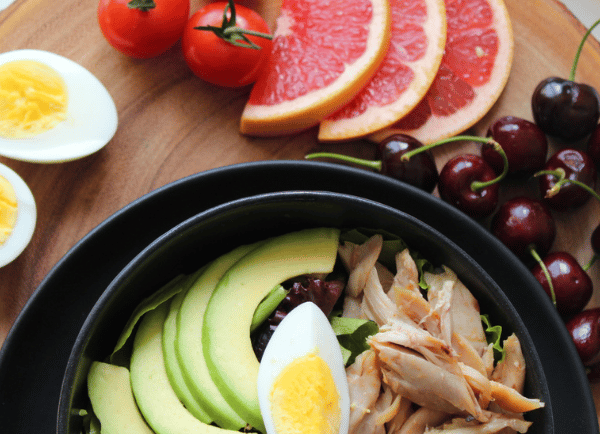Healthy diet in pregnancy
healthy food healthy body
LIFESTYLE FOODHEALTHCARE


Nurturing the Miracle Within: A Guide to a Healthy Diet During Pregnancy
Pregnancy is a beautiful and transformative journey, a time when your body undergoes incredible changes to nurture and grow a new life. To support this miraculous process, a healthy and well-balanced diet is crucial. The food you consume during pregnancy not only affects your own health but also plays a significant role in the development and well-being of your baby. In this blog, we'll explore the essential components of a healthy diet during pregnancy and offer tips for making nutritious choices for both you and your little one.
A Foundation of Nutrient-Rich Foods
The foundation of a healthy pregnancy diet should consist of nutrient-rich foods. These foods provide essential vitamins and minerals that are vital for both your health and your baby's growth and development. Here are some key nutrients to focus on:
a. Folate: Also known as folic acid, this B-vitamin is crucial in the early stages of pregnancy for preventing neural tube defects. Sources include leafy greens, fortified cereals, and legumes.
b. Calcium: Calcium is necessary for the development of your baby's bones and teeth. Good sources include dairy products, fortified plant-based milk, and leafy greens.
c. Iron: Iron helps prevent anemia and supports the increased blood supply during pregnancy. Incorporate lean meats, poultry, beans, and iron-fortified cereals into your diet.
d. Protein: Protein is essential for the growth of your baby's organs, muscles, and tissues. Lean meats, fish, eggs, dairy products, and plant-based protein sources like tofu and legumes are excellent choices.
e. Omega-3 fatty acids: These fats are vital for your baby's brain and eye development. Fatty fish like salmon and trout, as well as flaxseeds and walnuts, are good sources.
Fruits and Vegetables: A Rainbow of Goodness
Fruits and vegetables are a powerhouse of nutrients and antioxidants. Aim to include a variety of colorful produce in your daily meals. They provide essential vitamins, fiber, and minerals that promote overall health and support a healthy pregnancy. A diet rich in fruits and vegetables can also help prevent constipation, a common discomfort during pregnancy.
Whole Grains for Energy
Whole grains like whole wheat bread, brown rice, quinoa, and oats are excellent sources of complex carbohydrates. They provide sustained energy and help stabilize blood sugar levels, which can fluctuate during pregnancy. Whole grains are also high in fiber, aiding digestion and reducing the risk of constipation.
Hydration Matters
Staying well-hydrated is crucial during pregnancy. Water helps transport nutrients to your baby and helps flush waste products from your body. Aim to drink at least 8-10 glasses of water per day, and more if you're active or it's hot outside. Herbal teas and 100% fruit juices can also contribute to your fluid intake, but be mindful of caffeine content.
Foods to Limit or Avoid
While it's essential to focus on nutrient-rich foods, there are also foods and substances to limit or avoid during pregnancy:
a. Caffeine: High caffeine intake should be avoided, as it can lead to complications. Opt for decaffeinated coffee and limit your daily caffeine intake to around 200 milligrams.
b. Alcohol: Alcohol should be completely avoided during pregnancy as it can cause fetal alcohol spectrum disorders.
c. Raw or undercooked seafood, eggs, and meats: These can carry harmful bacteria. Always cook them thoroughly.
d. Soft cheeses and unpasteurized dairy products: These can pose a risk of listeria contamination, which is harmful during pregnancy.
e. Excess sugar and highly processed foods: These can lead to excessive weight gain and gestational diabetes. Focus on whole, natural foods instead.
A healthy diet during pregnancy is a cornerstone of a successful and comfortable pregnancy journey. Remember that every pregnancy is unique, so it's essential to consult with your healthcare provider or a registered dietitian to tailor your diet to your specific needs and circumstances. By prioritizing nutrient-rich foods, staying hydrated, and making informed choices, you can provide the best possible start for your growing baby and ensure your own well-being throughout this remarkable experience.


